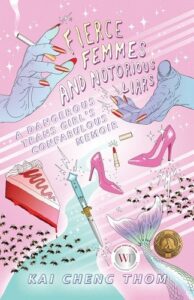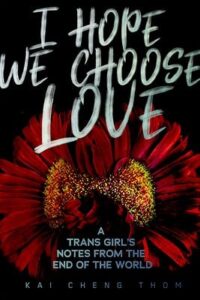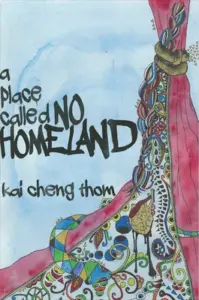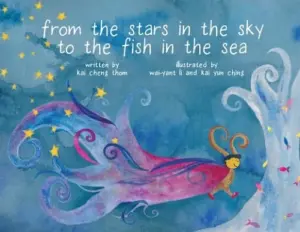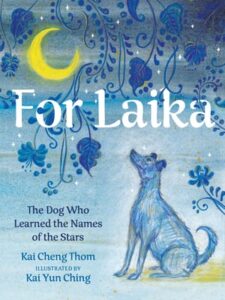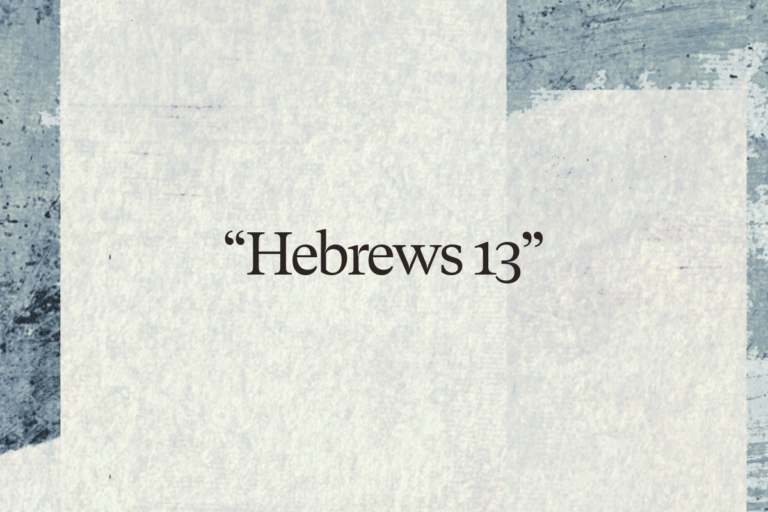Closing: Poems as Teachers (ft. Kai Cheng Thom) | Episode 7
In this concluding episode of “Poems as Teachers,” our special miniseries on conflict and the human condition, host Pádraig Ó Tuama says the poems discussed in this offering are a different kind of teacher: “not as teachers that give us rules to follow — more so teachers that share something of their own intuition.” And for a final reflection, he offers Kai Cheng Thom’s “trauma is not sacred,” which speaks directly, fiercely, and lovingly to the pain, scars, and violence that we humans carry and inflict upon one another.
This is the final episode of “Poems as Teachers,” a special seven-part miniseries on conflict and the human condition.
We’re pleased to offer Kai’s poem, and invite you to read Pádraig’s weekly Poetry Unbound Substack, read the Poetry Unbound book, or listen back to all our episodes.
Guest
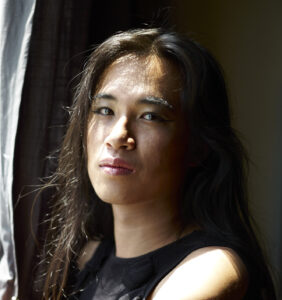
Kai Cheng Thom is a writer, performance artist, and community healer. Kai Cheng is the author of the novel Fierce Femmes and Notorious Liars: A Dangerous Trans Girl's Confabulous Memoir; the essay collection I Hope We Choose Love: A Trans Girl's Notes at the End of the World (an American Library Association Stonewall Honor Book); the poetry collection a place called No Homeland (an American Library Association Stonewall Honor Book); and the children's books From the Stars in the Sky to the Fish in the Sea (illustrated by Kai Yun Ching and Wai-Yant Li) and For Laika, the Dog Who Learned the Names of the Stars (illustrated by Kai Yun Ching). She won the Writers' Trust of Canada's Dayne Ogilvie Prize for LGBTQ2S+ Emerging Writers in 2017. Image by Rachel Woroner.
Transcript
[music: “Praise the Rain” by Gautam Srikishan]
Pádraig Ó Tuama: My name is Pádraig Ó Tuama and I worked in conflict resolution throughout my twenties and thirties. Some of those jobs were directly with people affected by conflict, and some of those were with people who had perpetrated conflict. Some of those people had joined state armed forces or paramilitary organizations.
And when I turned 40, I began to realize that the wind had gone out of the sails for me in this work. Mostly I discerned this really through feelings of boredom. It would go a bit like this: I’d arrive into a conflict and hear the various sides and then would begin to feel like, well, here’s the person who’s going to try to reach out and here’s the person who will suggest compromise, and here’s the person who will resist. And here’s the dynamic in the room where we’d just be about to reach conclusion and someone would say something that would place us back in a position that felt like we’d made no progress whatsoever. And I’d seen that over and over again. I tried loads of methods, different ways to bring people along, and I began to think, what is that difficulty? I made a study of resistance and I began to ask people, what is your resistance to the possibility of us arriving at some kind of conclusion? And often it was that there was some fear of the unknown. It occurred to me that the best thing for facing into the fear of the unknown was to look at art, to look at something that makes something.
The word “poem” has been mentioned so many times in Poetry Unbound, it comes from the Greek word poíēma, which means a made thing. And we all break things. There’s an old adage that it is easier to break something than to make something, and I believe that, and I think that’s very true in conflict resolution as well, because when you make something — make some kind of reparation, make some kind of change towards the good — it’s always small and it’s vulnerable. And it is easier, therefore, to feel a sense of power when you’re breaking something apart than when you’re beholding something to say, “well, it’s not complete yet, but it’s got potential.” It’ll take time and tenderness and vulnerability and some kind of collaboration and cooperation with each other. Peace is very, very hard.
I’d grown up learning poems in two languages in Irish and English, and loads of the poems we learned in Irish were about the revolution against British occupation and colonization and partition in Ireland and elsewhere too. We were learning poems as 11 year olds that had been written by people who were subsequently executed for their part in declaring Irish freedom. And so I’ve always known that poetry concerns public life.
But poetry isn’t a psychosocial lesson for how to do peace. I think poetry is like an imagination or a dream that suggests itself to imagination. And this series that we’ve been doing looking at conflict and the human condition looks at poems as teachers but not as teachers that give us rules to follow — more so teachers that share something of their own intuition. The work of a poem isn’t just to comprehend it perfectly. The work of a poem is when the poem does work in us, it influences us. It undoes something in us or makes something stronger or makes something weaker. It provokes a question. It makes you look at something you thought you knew in a new way, because you’re making a connection. You’re using language in a way that’s open to its own unfolding surprise.
The motivation behind Poems as Teachers: Conflict and the Human Condition has been to explore poets and writers who, alongside being really clear and assertive about how they see the world, also are offering this small made thing of a poem that has all kinds of offerings of hospitality, radical, complicated, demanding hospitality at the heart of it.
I wanted, as we finished up this small miniseries, to say a few words in conclusion, but also to finish up by looking at a poem that is a teacher about conflict and the human condition. And that poem is called “trauma is not sacred” by Kai Cheng Thom.
violence is not special pain is not holy suffering does not make angels abuse defines no one you are more than the things that hurt you you are more than the people you have hurt do not make an altar to your woundedness do not make a fetish out of mine a body belongs to no one a memory is not made to be eaten does it titillate you to hear about assault if i told you my story, would you swallow it whole if i confessed my sins would you feed me to the beasts to purge your own i will show you mine if you show me yours we have all seen the darkness now give us the dawn tell me about the joy you keep in the hollow spaces between your bones tell me again how you laughed when you realized that you were not wholly unlovable i’ll tell you again how i cried when my best friend told me that I was not a bad person remember how we used to count the lines on our palms when we were little how we used to try to read the future for its gifts how we used to make lists of the things we would dream of when finally we were free i will make you a list of the things i’m grateful for i will sing you a litany of reasons to be alive i want to know the songs you wake up for in the morning i want to marvel at the unbelievable graciousness of your being i know that i am capable of pouring love like lavender oil into your cupped palms there is forgiveness like honey pooled in the chambers of our hearts you are the thing i am most grateful for all bodies know how to heal themselves given enough time all demons carry a map of heaven and their scars beneath the skin of every history of trauma
there is a love poem waiting deep below
[music: “Creatures of Myth” by Gautam Srikishan]
There’s so many things to say about this poem, one of them is the title, “trauma is not sacred,” and I think that’s asking all of us who’ve been traumatized to find other things that we give sacred attention to, not only the pain that’s been inflicted on us, but also “trauma is not sacred” is speaking to those of us who’ve perpetrated traumas to say there’s nothing sacred, there’s nothing achieved in victimizing other people. This is a personal poem as well as a really, really political poem. Its entire expanse is the world.
Kai Cheng Thom is a Chinese Canadian trans poet, and she’s speaking from the position of having been and continuing to work as a coach to people as they think about their art, but also as they think about how it is that their communities can change and move towards each other. So in many ways I see this poem as a distillation of an entire body of work, an entire body of knowledge and expertise as well.
I think the impulse in the poem is to acknowledge trauma and to acknowledge those who prey on the trauma of others or who cause it, to acknowledge, too, the need for forgiveness in oneself, but then to turn really clearly to intimacy, friendship, vulnerability, making of connection of touch, of reminiscence, of the delight in sharing love with each other. It seems like there’s a variety of people that are being spoken to. Sometimes it seems like a childhood friend or a sibling or a best friend or a lover, maybe it’s a whole variety of those and more too. But what’s spoken to is the imagination about what makes and sustains.
I feel like “trauma is not sacred” has an impulse to say, “how about we turn to that which we know is nurturing and that which we know, also, is difficult, which is the way the poem ends: “all bodies know how to heal themselves given enough time all demons carry a map of heaven in their scars beneath the skin of every history of trauma there is a love poem waiting deep below.” That kind of language can seem like it’s removed from the daily reality of the news that we face these days, but I think it is addressing the very heart of violence, of pain, and the infliction of pain that we see enacted in the news every day. And this is naive, and I want to defend naivety in this poem because “naive” comes from the word to be born. What Kai Cheng Thom is urging us towards is that which can be born in a moment, that’s always going be small and always going to be in need of nurture.
To go back to the definition, really, of a poem as a made thing, what does it mean for all of us, whether reading the news, writing it, consuming it, being visited by trauma of occupation, by the trauma of kidnap, by the things that happen in a local community or in an international context. What would it mean for all of us to find ways where we’re paying attention to what it is that words can make?
These are small dreams and Poetry Unbound’s aim is simply to talk about poetry and what poems can do as we live them and engage with them in our lives. But I do think that there’s some call behind this to take the teaching, the education that a poem can give us, to make something even in the face of seeing things break all around us. Kai Cheng Thom’s poem is a teacher of mine and I carry it with me.
[music: “Praise the Rain” by Gautam Srikishan]
Chris Heagle: “trauma is not sacred” comes from Kai Cheng Thom’s book a place called No Homeland. Thank you to Arsenal Pulp Press who gave us permission to use Kai Cheng’s poem. Read it on our website at onbeing.org.
[music: “Praise the Rain” by Gautam Srikishan]
Additional support for this mini-season of Poetry Unbound comes from:
Civic (Re)Solve — building communities of civic empowerment.
Quiet — listen and finish listening.
And The Hearthland Foundation — committed to justice, equity and connection, one creative act at a time.
Poetry Unbound is: Gautam Srikishan, Eddie Gonzalez, Lucas Johnson, Kayla Edwards, Tiffany Champion, Cameron Musar, and me, Chris Heagle.
Our music is composed and provided by Gautam Srikishan and Blue Dot Sessions.
This podcast is produced by On Being Studios, which is located on Dakota land. Open your world to poetry with us by subscribing to our Substack newsletter. You may also enjoy Pádraig’s book, Poetry Unbound: Fifty Poems to Open Your World. For links and to find out more visit poetryunbound.org.
Books & Music
Recommended Reading
The On Being Project is an affiliate partner of Bookshop.org and Amazon.com. Any earnings we receive through these affiliate partnerships go into directly supporting The On Being Project.





